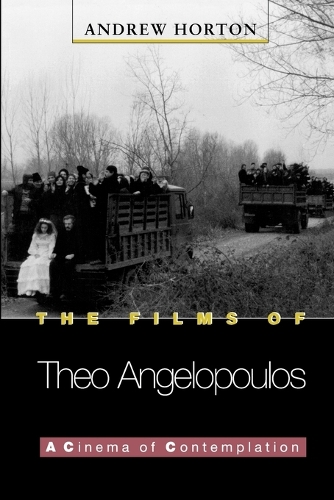
The Films of Theo Angelopoulos: A Cinema of Contemplation
(Paperback, Revised edition)
Publishing Details
The Films of Theo Angelopoulos: A Cinema of Contemplation
By (Author) Andrew Horton
Princeton University Press
Princeton University Press
3rd January 2000
Revised edition
United States
Classifications
Tertiary Education
Non Fiction
Individual film directors, film-makers
791.430233092
Physical Properties
Paperback
256
Width 152mm, Height 235mm
340g
Description
Focusing on Angelopoulos' cinematic vision, this text provides a contextual study that attempts to demonstrate the quintessentially Greek nature of the director's work. The book situates the director in the context of over 3000 years of Greek culture and history. Angelopoulos has used cinema to explore the history and individual identities of his culture. With such far-reaching influences as Greek myth, ancient tragedy and epic, Byzantine inconography and ceremony, Greek and Balkan history, modern Greek pop culture (including bouzouki music), shadow puppet theatre and the Greek music hall tradition, Angelopoulos emerges as an original "thinker" with the camera and a distinctive director.
Reviews
"Andrew Horton anatomizes a unique aesthetic sensibility, investigating the power of these images with his own impressive powers of observation and learning."--Jack Granath, Rain Taxi "[A] thorough study of Angelopoulos... This is the first book on Angelopoulos in English... Horton comments knowledgeably on the many directors who have influenced Angelopoulos...and on the artistic influences of the Greek Orthodox church and Byzantine and classical Greek culture."--Choice "This [book] ... could not have come at a better time or from a more qualified critic... Andrew Horton opens the door to a complex body of work and will do much to correct the notion that Angelopoulos is simply an eccentric individualist or a director overly infatuated with technique."--Dan Georgakas, Film Quarterly
Author Bio
Andrew Horton is Jeanne H. Smith Professor of Film and Video Studies at the University of Oklahoma. He is the author of Writing the Character Centered Screenplay, Russian Critics on a Cinema of Glasnost, and Comedy/Cinema/Theory, and coauthor, with Michael Brashinsky, of The Zero Hour: Glasnost and Soviet Cinema in Transition.
